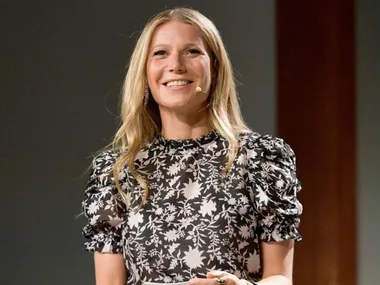A new senate inquiry is aiming to break the stigma around menopause in Australia.
The inquiry is a result of the 2023 National Women’s Health Survey, which found that 27 percent of women with menopausal symptoms have taken an extended break from work, study or exercise.
“Only humans and toothed whales go through menopause,” journalist Imogen Crump told the inquiry last week, explaining that while “older female whales lead the pod” and act as “the peacekeepers, the teachers…showing the next generation migration patterns and food sources,” Australian women at this stage of life are being held back from reaching their full potential.
Considering the widespread and long-standing discrimination against women in the healthcare system, it’s not exactly a surprise that women’s experience of menopause in Australia hasn’t been taken seriously until recently.
From inadequate healthcare to unsupportive workplace policies and social stigma, the inquiry is taking a deep dive into some of the systemic issues at play and their considerable impact on women’s health and economic outcomes.
Below, we breakdown some of the key takeaways from the inquiry, so far.
The Key Takeaways
Unsupportive workplace policies
The inquiry is aiming to get a better understanding about how menopause effects women in the workplace.
We already know that the menopause-related career breaks are costing Australian women a collective $15.2 billion in income and super for every year of early retirement, according to a report from The Australian Institute of Superannuation Trustees.
On an economic scale, an average 7.4 years of missed earnings opportunity results in a loss of $112.2 billion—all from a biological process that affects every woman in Australia to some extent.
The inquiry heard recommendations from multiple organisations, with the Finance Sector Union of Australia recommending the government amend section 65 (1A) of the Fair Work Act to include the right for a worker suffering from perimenopause or menopausal symptoms to apply for flexible work.
Financial services firm, Future Group, recommended mandated menopause leave.
However, Mary Delahunty, CEO of Association of Superannuation Funds of Australia (ASFA), recommended more research be done before policy recommendations are made.
“Only limited research has been undertaken on the impact of menopause transition on work and careers,” Davis explained, highlighting that “a lot of the data” from marketing surveys that claim “women are leaving work in droves because of menopause” is “inaccurate.”
Main recommendations: more in-depth research to understand the real impact of menopause on women’s careers, more flexible work policies for women

Systemic healthcare discrimination
The impact on Australian women’s financial situation and the gender pay gap is significant however, there are also the root mental and physical health issues that come with menopause to consider.
If 27 percent of women going through menopause have symptoms severe enough to take them out of work, study and exercise then it suggests the modern medical system is not serving women as it should.
The inquiry heard from multiple women who said they were either dismissed or offered ineffective treatments by healthcare professionals.
Davis recommended that all universities should require medical students to take a compulsory module on midlife women’s health in the curriculum.
“Many pharmacists and GPs are more likely to suggest complementary and alternative therapies they know don’t work better than placebo because they don’t want to have the conversation because they don’t feel confident to have the conversation.”
Davis also said that of the first 1,000 registrations for the World Congress on Menopause in Melbourne, only 78 were male medical professionals.
She pointed out that long consultations and care for women aren’t incentivised by government Medicare subsidies.
Main recommendations: Government to incentivise more menopause training for doctors, Medicare subsidised long consultations for women
Lack of education and misinformation
Greens senator Larissa Waters, who established the inquiry, is campaigning for “evidence-based policies” to help women in this phase of life.
This is because lack of menopause education coupled with a rise in misinformation on social media is turning menopause into a marketing opportunity for companies.
“Every cowboy and girl in town is coming and trying to sell stuff including that appalling vaginal laser treatment,” Kaz Cooke, the author of It’s the Menopause, told the inquiry.
Monash University’s Women’s Health Research Program director, Prof Susan Davis, supported Cooke’s evidence by emphasising “the exploitation of women by commercial interests who have jumped on menopause.”
Multiple women also told the inquiry they had heard of menopause but didn’t know about perimenopause.
Cooke recommended Australia have a public health campaign for menopause so women can access evidence based information
Main recommendations: women provided with more education around menopause through a public health campaign
What’s next?
Another set of hearings will take place later this year in Brisbane, Canberra and Adelaide. Then, the committee will deliver its final report in September.
The result will hopefully be a new and more nuanced understanding of menopause in Australia, leading to better policies and healthcare that serves Australian women.



